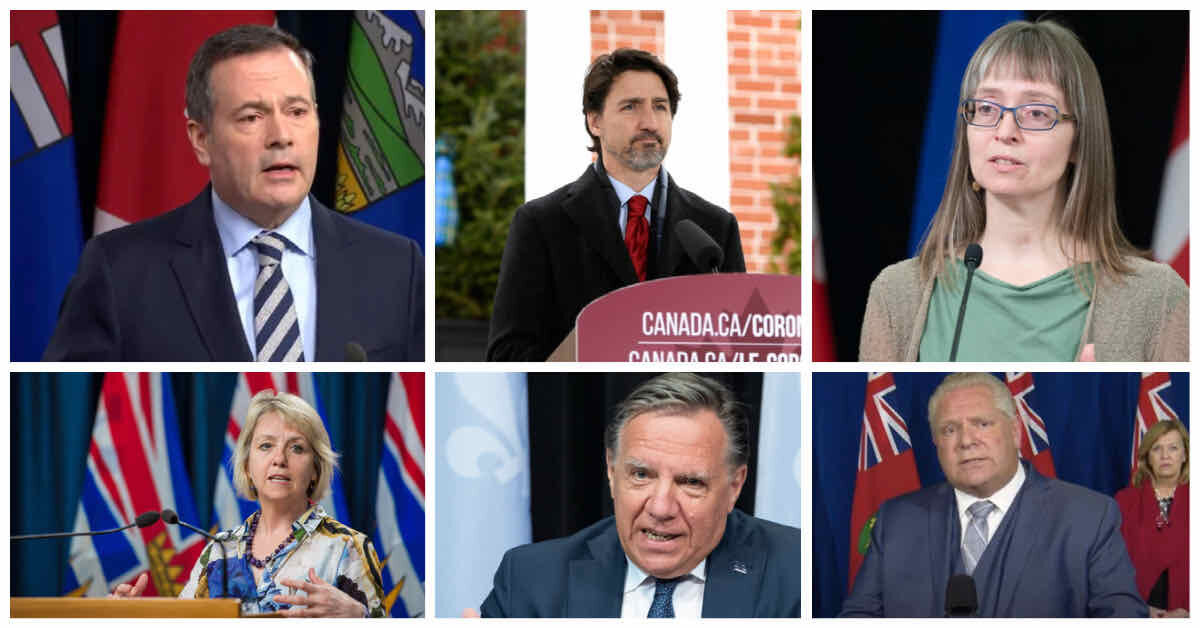Giving the Government a C+ of COVID Communication
Dr. Deena Hinshaw will give her last COVID update in Alberta tomorrow, unless numbers rise drastically in the coming weeks. It's time. It makes no sense for the government to open everything up and keep holding news conferences to update us on the COVID scorecard.
The decision to end the updates makes good communication sense, but certainly many other decisions governments across the country have made about communicating the COVID story have not.
With teachers everywhere handing out report cards this week, I thought I would do a report card for governments on how they have communicated on the COVID issue. Spoiler alert: They didn't do well.
Timeliness
One of the key elements for good communication is for it to be timely.
On this, governments across Canada get high marks. With only a few hiccups, COVID case numbers, deaths, hospitalizations and much more have been available on a daily basis. Medical Officers of Health, Health Ministers and Premiers have done news conferences on an almost daily basis since the pandemic started. They have put in a solid effort to communicate on a timely basis.
Even the Prime Minister did what was dubbed “The Trudeau Morning Show” as he emerged every day from the house he was staying in the early days of the pandemic to give a pep talk. He didn’t always answer the questions reporters asked him, but he was there.
All around, a solid effort across the country.
Report Card Mark: A
Honesty and Transparency
Here’s where things begin to go downhill.
While much of the latest information the government had on COVID (certainly not all though) has been communicated to the public, public health decisions have been based on politics and not necessarily public health outcomes.
While we all have the same information, what governments have done with it has varied greatly across Canada and even within provinces.
In a perfect world, public health decisions would be made by health officials and medical professions. But we don’t live in a perfect world. While many people would like medical health officers to make all the calls during COVID, we never elected them. We did elect people to form governments and make decisions on our behalf.
That has led to far too many inconsistent decisions that were based more on politics than public health, harming honesty and transparency.
Report Card Mark: C+
Credibility
This is another area governments could have done much better on.
One of the biggest results from the last 15 months is a lack of trust Canadians have in government. A recent public opinion poll showed that people don’t trust the information they’re getting and the people who are giving it.
In the early days of the pandemic, the province’s top medical health officers were called heroes. They were celebrated as people who were doing everything they could to save lives and keep us safe. Slowly that changed, and within a few months, several had credibility issues. Far too often, political decisions made by their bosses left them in uncomfortable positions in front of the media. They needed to dance around questions asked by reporters, or take issue with political leaders.
Every time they danced, they lost credibility.
Report Card Mark: C-
Factual
One of the basic elements of good communication is for what you are communicating to be factual. It needs to be true and not just opinion.
Too often politics got in the way (see above). In Alberta, Premier Jason Kenney has been so desperate to see the Calgary Stampede go ahead, his Open For Summer campaign basically took the opening day of the Stampede and then worked back from there with a few days of grace thrown in.
In Ontario, Premier Doug Ford closed golf courses this spring and later told the media he did it because “His buddies told him how they car pooled together to golf and then had a few pops together after.”
As time marches on, we’re finding out many of the things we were told by the federal government weren’t factual. Millions of masks it bought from China were defective. At the time, allegations of defective PPE were dismissed. Now we know the reports were true. There are many other stories like that.
Report Card Mark: B-
Consistency
Good communication, especially done over a long period of time, is consistent. The messaging may change during the pandemic, but it should be consistent. It hasn’t been.
Federal leaders, including the Prime Minister talked about Canada “Having some of the strongest borders in the world” during COVID. Really? Virtually every Premier questioned that and wanted the federal government to do more.
Canadians returning to the country had to quarantine in a hotel for two weeks at their own expense. When Trudeau returned home from the G7 Summit last week, he only had to spend 12 hours in a hotel. Overnight.
Where’s the consistency?
Probably the biggest inconsistency came in schools. Governments preached social distancing and mask wearing, but then forced children, teachers and others to go to school, almost as if everything was normal.
On a positive note, messaging about vaccinations has been pretty consistent. Governments have clearly been in favour of vaccinations and have worked hard to make sure those who want to get vaccinated can do so as quickly as possible.
Maybe that’s why Canada has more people with first doses than any other major country in the world? Consistent messaging makes a difference.
Report Card Mark: C


Commentary